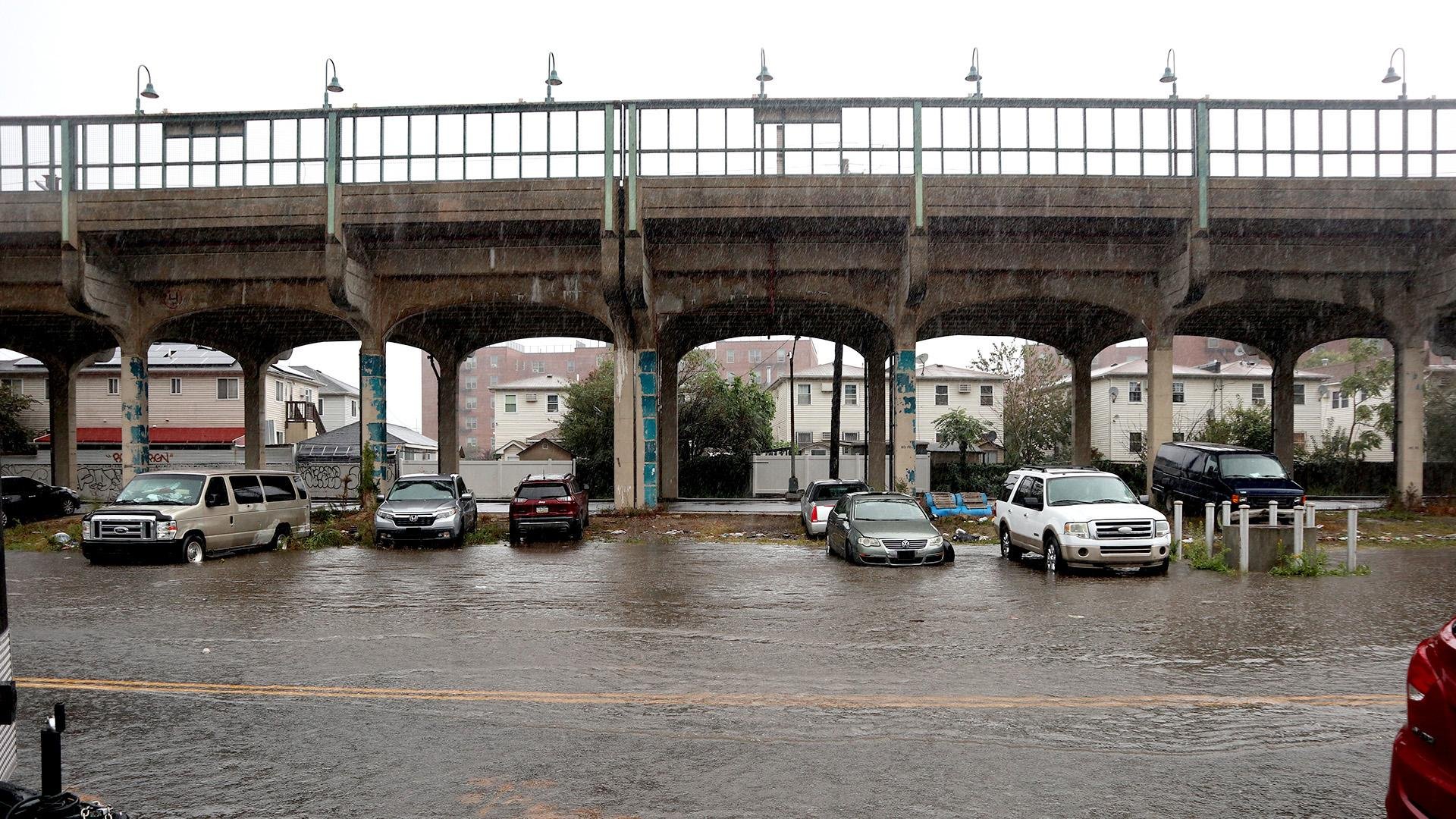The USL is co-leading a National Science Foundation planning effort as part of the Catalyzing Human-Centered Solutions Through Research and Innovation in Science, the Environment and Society (CRISES program). The team is developing a plan for a new Civic-Led Urban Adaptation Research Center (CIVIC-UARC), which will foster new collaborations between an interdisciplinary team of urban experts and diverse institutions, work closely with civil society and public sector stakeholders, and use New York City as an urban laboratory. Our objective is to develop a model for coproduction of knowledge and solutions to address climate risks in cities, with special attention to environmental justice concerns.The work of the Center will train the next generation of climate adaptation scientists and scholars, build climate resilience capacities of local partners, and be a guide for other cities in the U.S. and around the world.
ClimateIQ is an AI driven, multi-hazard risk and vulnerability tool leveraging Machine Learning, Big Data, and multiple climate hazard model environments to reveal high resolution hotspots of overlapping climate risks in cities and urbanized regions.
The aim of the tool is to help city planners and communities prioritize local adaptations to climate hazards, using advanced climate models and machine learning to identify the areas most at risk.
Our Approach:
ClimateIQ is based on an innovative, integrated multi-hazard modeling environment, which generates predictions for high resolution urban heat and extreme flood hazard exposure information. ClimateIQ uses advanced physics-based models to simulate climate hazard exposure. Machine learning models learn to reproduce the outputs of the physics-based models, speeding up climate hazard simulation time. To make hazard information available to users, ClimateIQ partners with Climasens to provide a user-friendly dashboard and APIs for easy integration into existing workflows.
Team:
The ClimateIQ team brings extensive experience in climate risk modeling, AI applications, data analysis and visualization, as well as working with diverse stakeholders in cities. Led by Dr. Timon McPhearson, Director of the Urban Systems Lab (USL) at the New School in New York City, the core team includes faculty and researchers at The New School, along with partners at Climasens, Stockholm Resilience Centre (SRC), Beijer Institute of Ecological Economics, Cary Institute of Ecosystem Studies and George Mason University. Support provided in part by Google.org Impact Challenge on Climate Innovation.
AI, People & Planet is a research initiative hosted by the Beijer Institute of Ecological Economics at the Royal Swedish Academy of Sciences, the Princeton Institute for International Regional and Studies at Princeton University, The Urban Systems Lab at The New School and, the Stockholm Resilience Centre at Stockholm University.
The USL is exploring advances in urban data science, availability of real-time data, advanced spatial modeling, machine learning, cloud-based GPU processing, and cutting-edge visualization of urban social and infrastructure systems to ask new questions to be asked about key climate change risks and opportunities to advance adaptation in cities. Our interdisciplinary team includes scientists, planners, NGOs, industry, and other stakeholders working around the world to plan and envision positive urban futures, assessing heat and flood risk, and analyzing nature-based solutions and other strategies for building SETS resilience in cities.
Project Team: Timon McPhearson, Emily Maxwell, Michael Treglia, Cecilia de Corral
We are collaborating with The Nature Conservancy and Columbia University to produce the most comprehensive assessment of New York City’s green roofs to date. Projects such as Aucher Serr’s Envisioning a New Urban Jungle explore the future of New York’s green roofs through data analysis and visualization.
Our research on green roofs is closely linked with teaching and outreach. The New School’s Green Roof Ecology course — a collaboration with local partners at Brooklyn Grange — gives students a chance to study actual sites and develop related design projects. As part of the Green Roof Researchers Alliance since its inception, USL cosponsored the organization’s State of Green Roofs in NYC Conference with the Audubon Society.
Social-ecological and technological factors moderate the value of urban nature
By Bonnie L. Keeler, Perrine Hamel, Timon McPhearson, Maike H. Hamann, Marie L. Donahue, Kelly A. Meza Prado, Katie K. Arkema, Gregory N. Bratman, Kate A. Brauman, Jacques C. Finlay, Anne D. Guerry, Sarah E. Hobbie, Justin A. Johnson, Graham K. MacDonald, Robert I. McDonald, Nick Neverisky & Spencer A. Wood
Project Team: Timon McPhearson
Urban ecosystems and biodiversity are forms of natural capital with profound influence on human wellbeing. As part of the Natural Capital Project, USL is developing the Urban InVEST valuation model with colleagues from Stanford University, University of Minnesota, the Stockholm Resilience Centre, and the Beijer Institute for Ecological Economics. Urban InVEST integrates spatially explicit biophysical and socio-economic data to allow users to quantify and map the impacts of alternative urban designs on ecosystem services — showing their associated benefits and costs for different communities.
Project themes
Big Data & Artificial Intelligence · Nature-Based Solutions · Urban Ecology









